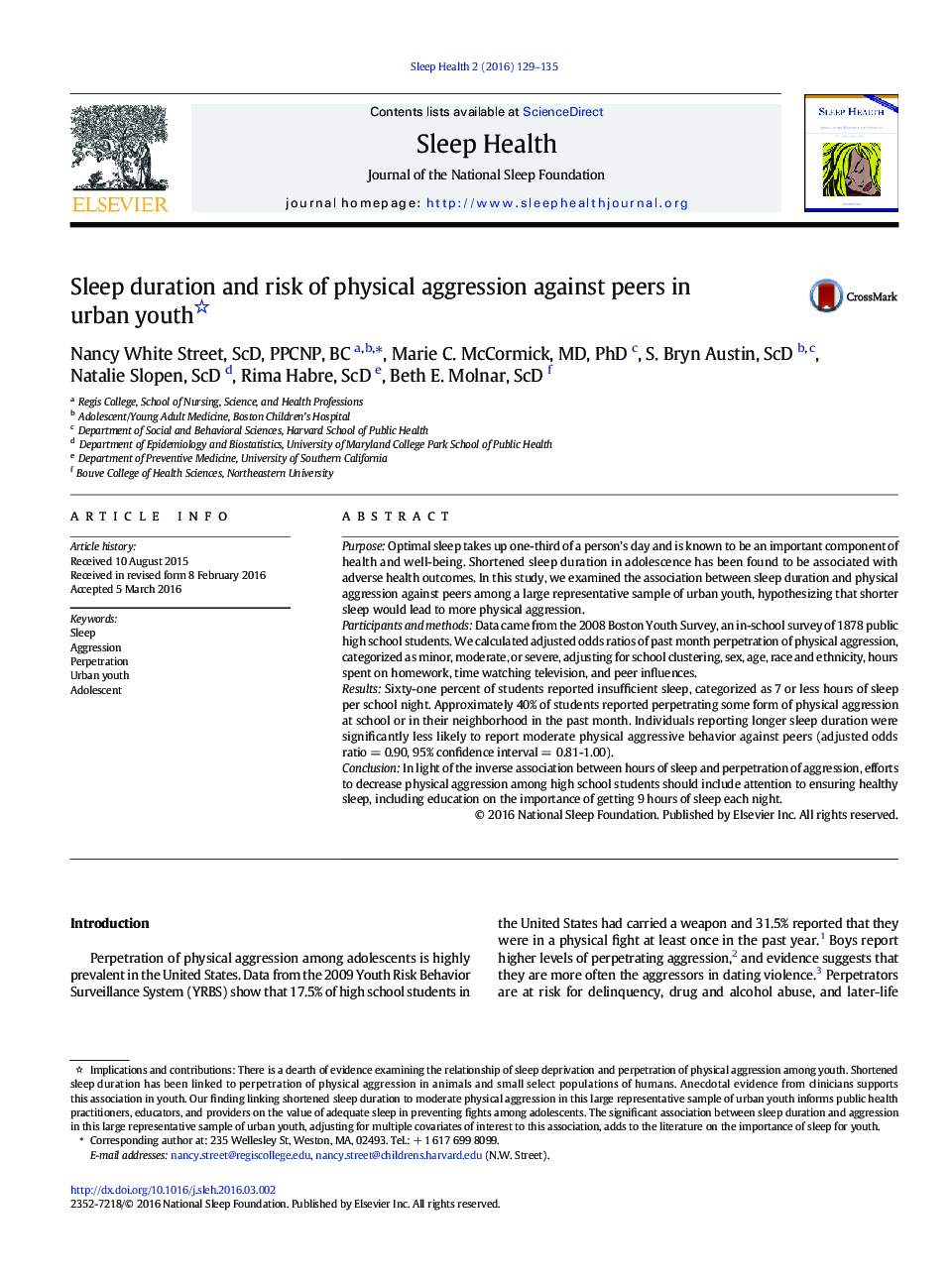| Article ID | Journal | Published Year | Pages | File Type |
|---|---|---|---|---|
| 916247 | Sleep Health | 2016 | 7 Pages |
PurposeOptimal sleep takes up one-third of a person’s day and is known to be an important component of health and well-being. Shortened sleep duration in adolescence has been found to be associated with adverse health outcomes. In this study, we examined the association between sleep duration and physical aggression against peers among a large representative sample of urban youth, hypothesizing that shorter sleep would lead to more physical aggression.Participants and methodsData came from the 2008 Boston Youth Survey, an in-school survey of 1878 public high school students. We calculated adjusted odds ratios of past month perpetration of physical aggression, categorized as minor, moderate, or severe, adjusting for school clustering, sex, age, race and ethnicity, hours spent on homework, time watching television, and peer influences.ResultsSixty-one percent of students reported insufficient sleep, categorized as 7 or less hours of sleep per school night. Approximately 40% of students reported perpetrating some form of physical aggression at school or in their neighborhood in the past month. Individuals reporting longer sleep duration were significantly less likely to report moderate physical aggressive behavior against peers (adjusted odds ratio = 0.90, 95% confidence interval = 0.81-1.00).ConclusionIn light of the inverse association between hours of sleep and perpetration of aggression, efforts to decrease physical aggression among high school students should include attention to ensuring healthy sleep, including education on the importance of getting 9 hours of sleep each night.
